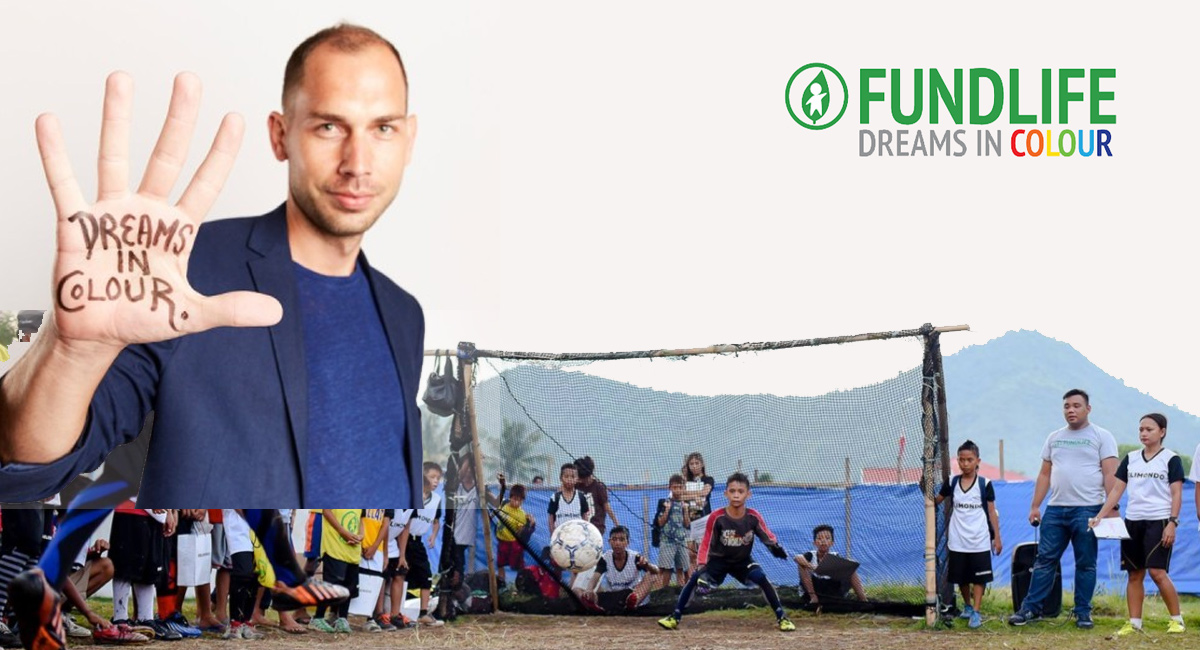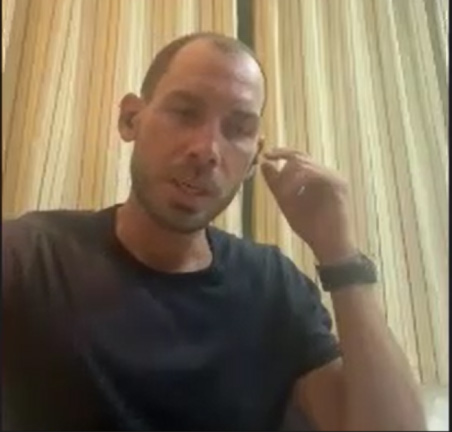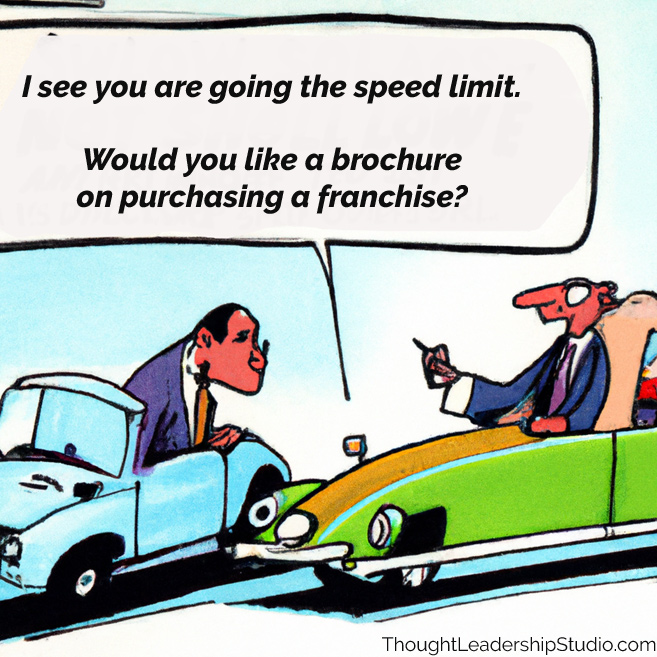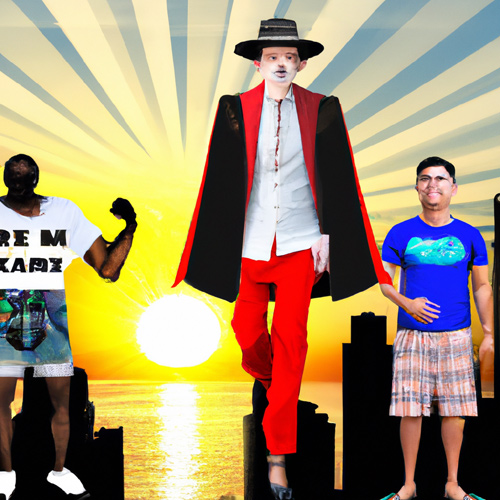Thought Leadership Studio Podcast Episodes:
Interview with Marko Kasic the founder of FundLife
Episode 45 - Explore the layers of growth, including building hope, identity, purpose, and influence, to create lasting change. with Marko Kasic of FundLife

#entrepreneurship, #insight, #inspiration, #interviews, #leadership, #nonprofits, #paradigmchange, #paradigmshifts, #socialentrepreneurship, #systemsthinking, #thoughtleadership, #thoughtleadershipexamples
Or Click here to listen or subscribe on appWhat this episode will do for you
:- Gain insights from Marko Kasic, director of FundLife, a grassroots nonprofit organization based in the Philippines, on creating enabling pathways for vulnerable children and young people.
- Discover alternative views on education and the power of experiential learning in unlocking infinite potential.
- Explore the layers of growth, including building hope, identity, purpose, and influence, to create lasting change.
- Discover how personal experiences and a desire for meaningful impact can drive transformation and challenge traditional thinking.
- Uncover strategies for navigating systems, breaking rules constructively, and finding creative solutions to address societal challenges.
Marko Kasic.
In this episode, we have the privilege of interviewing Marko Kasic, the Founder and Executive Director of FundLife.
Marko's journey and dedication to creating positive change have made a profound impact on the lives of vulnerable children and young people in the Philippines. Join us as we explore Marko's inspiring work and delve into the transformative power of education and empowerment. Get ready to be inspired by Marko Kasic and FundLife's incredible mission.
In this engaging conversation, we will uncover the remarkable initiatives that FundLife has undertaken to provide enabling pathways for vulnerable children and young people. Through their unique experiential learning curriculum and purposeful play, FundLife is breaking barriers and ensuring that every child has access to a safe childhood, quality education, and equitable opportunities to reach their full potential.
Marko's personal journey as a refugee and his experiences in corporate finance have shaped his perspective and fueled his passion for making a difference. Beyond his extraordinary work with FundLife, Marko is a true adventurer at heart. As an avid runner, traveler, amateur photographer, and motorcycle enthusiast, he embodies a spirit of exploration and embraces life's diverse experiences.
Join us as we delve into Marko's captivating story, his vision for a brighter future, and the strategies employed by FundLife to navigate complex systems and create sustainable change. Prepare to be inspired as we uncover the power of education, resilience, and community impact in Marko Kasic's thought-provoking interview.
Tune in to this episode of Thought Leadership Studio and embark on a journey of transformation, discovering how one person's determination can ignite hope, unlock potential, and empower vulnerable children and young people to "Dream in Colour."
Some of FundLife's coordinates:
Curated Transcript of Interview with Marko Kasic
The following partial transcript is lightly edited for clarity - the full interview is on audio. Click here to listen.
Chris McNeil: I'm Chris McNeil, host of Thought Leadership Studio, and I'm sitting here with Marko Kasic, director of FundLife, a grassroots nonprofit organization based in the Philippines. FundLife combines a unique experiential learning curriculum with purposeful plays to create enabling pathways for some of the world's most vulnerable children and young people, especially those living in short term and chronic emergencies.
That's a powerful mission. Welcome, Marko.
 Marko Kasic: Thank you for having me, Chris. Pleasure to speak to you.
Marko Kasic: Thank you for having me, Chris. Pleasure to speak to you.
Learning Outside the Box of Traditional Education
Chris McNeil: I love the positive mission. I love the making a difference. And we were just talking before I started recording about your alternative views on education. Do you want to share a little bit of that and, and give us a little bit of a story of how that plays into the founding of FundLife and your personal (mission).
Marko Kasic: Yeah. You're diving right in, Chris. sure, sure. So, I guess everything for me, with fun life, my own personal upbringing is, is interlinked. It's all inextricably linked. So I was born in Croatia, moved to London with my family when I was seven. So from an early age, I didn't feel that, you know, I was part of that traditional education. I was dealing with some personal stuff, going to a new country.
 And essentially I never really fitted into the traditional educational system. and so throughout my high school and then onto college, I just felt that education wasn't serving me. I felt I had a bit of rebellious streak that I wanted to do something. And what I realized is when I graduated, I started reading a lot of Seth Godin books.
And essentially I never really fitted into the traditional educational system. and so throughout my high school and then onto college, I just felt that education wasn't serving me. I felt I had a bit of rebellious streak that I wanted to do something. And what I realized is when I graduated, I started reading a lot of Seth Godin books.
I read some autobiographies or some entrepreneurs that I admired, Richard Branson, Mohammad Eunice. So all of a sudden, all of the ideas that I initially had growing up, which were perhaps not encouraged by teachers, all of the heroes or all of the business personalities that I was starting to learn about, were actually going through some of these same struggles.
So essentially, I think what I realized is that I wasn't alone in thinking like this, which I felt for a long time. And then the culmination of starting FundLife was really meeting others, learning about some of these experiential learning programs. You mentioned self-directed learning. That's exactly what we try and do.
We try and create programs because we believe most of life's learning happens outside of the classroom. and especially when we work with highly marginalized children and young people, they often don't have access to what you and I would call quality education. So often they don't do well in traditional education systems. So we create opportunities where we give them confidence as opposed to tell them that they're not doing well just because maybe their reading or mathematics is not up to what it should be.
Chris McNeil: So it's a confidence building process and yet an experiential learning process. And part of that comes from - and we spoke about how I can relate to this - dissatisfaction with what some would call indoctrination. And I don't mean to badmouth education.
Education is awesome, but it can in some cases be more like indoctrination and less like helping people find the infinite potential within themselves and express that in their own unique ways.
Marko Kasic: Completely agree. And I think it's about identifying everyone's individual potential. I think that's the one thing that I certainly got out of it. I felt that, and I had a good education in the UK. So I, again, like you, I can't talk badly about it, but I just felt that it's really there to create obedient workers and to make sure that people follow certain rules which are in place - the status quo.
I mentioned and again, that works for some people - I don't want to say that it doesn't work if you have a specific career in mind. But for what we do, and certainly with the work with the young people we work with, we felt that there was an alternative approach that we could work with. And until now, it's really proven, quite successful especially with the demographic that we cater to.
Rule Followers and Rule Breakers
Chris McNeil: That's awesome. And, we're going to return to that in a minute because I want to know some stories that tell of this positive impact that you're making through this alternative approach to education and empowerment. But to ground it in something I think a lot of our listeners can relate to, I had a business at one time that had multiple locations, and we were looking at franchising it. And I went to Chicago, Illinois in the US to the world's largest franchising company that helped businesses package for franchising. It was called FranCorp. And the founder of FranCorp, Don Borian said that you need to make sure that your franchisees are rules followers, but you are the franchisors and you're not going to be rules followers, you're the rule breakers.
 And he said, you know, you go to school and they encourage you to go for those A's, but what you find out is the, "A worker" ends up working for the "B student" manager whose higher up is a "C student" who runs the plant for a company owned by the "D student".
And he said, you know, you go to school and they encourage you to go for those A's, but what you find out is the, "A worker" ends up working for the "B student" manager whose higher up is a "C student" who runs the plant for a company owned by the "D student".
He said, the "D student" is the one who rejected the system. It's not that they're stupid, it's that they would reject the whole system. They saw a different way of doing things.
They said, you know, when selling franchisees, you're selling (to) systems (following) people. So as you speed by in your car doing 80 miles an hour in a 50 mile per hour zone, or 150 kph in a hundred kph zone, as you pass people, reach over and hand them your pamphlet if they're following the speed limit, because they're going to be the rules follower. You need (rules followers) to run your franchise that you set up all the rules for, but (you aren't the rules follower because) you're the one who knows how to metaphorically control the speeding car. So you don't care about the speed limit. Right?
And the speed limits are sometimes a good thing in limited line of sight situations. Or, sometimes they're imposed to create traffic ticket revenue for small cities and are abused that way.
And we face all kinds of speed limits in our society in various forms that can hold people back from fulfilling their potential. So I'm intrigued by these ways of looking outside the system that come natural to you - or have you worked to create this vision? And how does that plays out in empowering these youth.
Marko Kasic: It's a great example. And I completely agree. Again, in terms of we are not trying to create these unreasonable young people because many of the young people we work with, they have what you and I would consider to be relatively normal career paths, whether it's to become a chef, whether it's simply to graduate high school.
These goals, which might not seem lofty to them, it's actually something that no, no one in their family has done.
So it's actually almost paradoxical in the way that FundLife is about breaking some of these rules. But we actually teach young people how to have discipline, how to commit to hard work, how not to give up on tasks because they, they're easily discouraged.
They just don't have these positive role models around them. They don't have anyone that has invested in their, so we have a great line, which we took from the late Rita Peterson, who was a, an amazing teacher, gave a, a very famous TED talk.
And she says, every child needs a champion. And, and I completely love that line because so many young people, unfortunately, they don't have access to either a great education system or great professors or closer to home, just role models that they can emulate. So our job really is to create these positive role models and then give the freedom to the young people to find out what it is that they're passionate about. Do they like to bake? Okay, great. So maybe you don't have to finish high school. Maybe we can get you to do some vocational courses, do an F M B course, and then we can get you on the job training.
So we work with young people who haven't finished school, but essentially we want to give them alternative and employment, dignified employment opportunities, I should say. so it, it's really being adaptive. I think that that's the key thing. It's, it's, we don't set one way of working. It's really giving the empowerment agency to our operation staff and creating that connection with people. It's a very human-centric approach, which again, going back to education, I felt that it misses some of that human element because it, it's not set up to give, you know, individual outcomes outside of, you know, what the curriculum allows.
Chris McNeil: So I noticed on the FundLife.org website, on your team page, it looked like you had an inverted hierarchy, which I love. We're talking about rules and systems and rules are a good thing, but being trapped within rules that inhibit growth and inhibit achievement ... is when you have to become conscious of your ability to step outside of those rules and invent something new like you're doing.
So it looks like you have less of a hierarchical top-down approach than, like you said, kind of a grassroots. And the real leaders perhaps are the youths and the job of your, you and your team as to awaken this potential within them. But it really comes from them. You're creating the right environment for that through these positive role models.
What are a couple of lessons you've learned along the way that you think would be relevant to our listeners who are all about achievement and influence and making a positive difference through achievement and influence? What are some things you've learned along the way that have been growth experiences that you might not have anticipated before they happened?.
Learning and Growing in a Relationship of Equals
Marko Kasic: Yeah, there's, there's been a few and I think the most obvious you touched on there is it's just amazing what we found when we've given not just opportunity to young people, but really invested in young people. I've heard the line many times by very senior incumbent leaders who talk about development saying, let youth lead, which is a great line. But the reality behind that it is not often there.
You know, if you look at most of these, especially if we're talking about the development sector, NGOs, they tend to be very experienced leaders talking about what's best for children. And to me, again, there seems to be some disconnect there. In the same way, again, just because I link everything to education in the same way. When I was having my education, all of my professors were maybe 30, 40 years senior to me.
 And I felt there was a disconnect of what I wanted based on what they had. And I had that with my parents. I think there's a generation gap. So one thing that we've definitely learned is it's amazing what happens when you actually give full opportunity and full agency to young people. And so that hierarchy is not just for show, it's really, as you said, we facilitate young people and give them the confidence. They're not decision makers, but they're very much part of the steering group of the organization.
And I felt there was a disconnect of what I wanted based on what they had. And I had that with my parents. I think there's a generation gap. So one thing that we've definitely learned is it's amazing what happens when you actually give full opportunity and full agency to young people. And so that hierarchy is not just for show, it's really, as you said, we facilitate young people and give them the confidence. They're not decision makers, but they're very much part of the steering group of the organization.
And our job as leaders of the organization is to essentially say, okay, how can we support them in what they want to do because they know best? So that's, that would be, I think, the foremost thing that, that I've learned. And again, somewhat maybe paradoxical to that, it's also, I would say the value of having mentors for myself.
Because when I started fund life, I was 24, I was incredibly idealistic without being very pragmatic. And I had this grand vision that I could change everything, you know, that I could change the world very easily. And then as you get older, you realize that more and more you can't fight the system. You have to find creative ways of dancing within the system and having people help you along the way.
And so I've been incredibly lucky that I've met people along the way that have helped. And my advice to anyone now starting is find a mentor, find somebody that you really admire. ideally someone that you can connect with on a regular basis. Because most of my mentors, unfortunately, were either in books or people that I couldn't, it was a one way dialogue, but then along the way, you know, I managed to find, so those would be the two biggest learning, I guess, takeaways that I have looking back,
Chris McNeil: That's powerful, Marko. And what I'm getting from that are a few things, including a way to get out of your own thinking. A mentor perhaps can interrupt our pattern a little bit and, and give a different perspective, perhaps grounded in different experiences or broader experiences that we haven't yet experienced, which I think is related to what I perceive as something that's part of our systemic limitation in business.
 And that plays in all levels of business, like sales quotas, "here's what we expect you to do", but tell somebody what you expect them to do and you might hold them back from a level that would surprise you.
And that plays in all levels of business, like sales quotas, "here's what we expect you to do", but tell somebody what you expect them to do and you might hold them back from a level that would surprise you.
And that is obviously extremely important when you're dealing with people who've perhaps been suppressed by a lack of positive role models that you're bringing to them. And who knows what surprises are within them that they maybe they themselves couldn't have anticipated from this combination of factors.
So what are the combinations of factors, if you had to create a list to empower people, to empower those that you're serving that might apply to people empowering people within organizations- or within an audience - as well?
Marko Kasic: Well, I think it's slightly different (at FundLife). We don't refer to the people we help as beneficiaries, we refer to them as participants or extended stakeholders, because again, it's important for us that we build a relationship built on equality. We don't want to have this relationship where I am the mentor, you are the student. I am right, you are wrong. So essentially we refer to them as participants in our program, and we can only deliver our programs if the participants engage with the coaches.
The coaches can only report back to the management if they're able to actually get reinforced or have a good feedback loop from the participants. And, and then to answer your sort of question more directly, we've identified four key elements that we try and instill in the young people we, we work with. One is hope because you're dealing with essentially people who are in intergenerational poverty.
So in introduction, you mentioned chronic and short-term emergencies. A short-term emergency is a typhoon or a natural calamity, but poverty for me is a chronic emergency because it's intergenerational. So they, there is a sense this hopelessness when you're in poverty because all you are seeing is a future which will be just like your parents' future. So that's number one, to give them hope that there is an alternative. And that's where the role models come in, because they can see people from their community that have escaped or have found a betterment.
And then it's identity - figuring out what is my personal identity? Because if we introduce them to a lawyer who came from their community, maybe that young person is not focused on a degree in, in, in becoming a lawyer. Maybe they want to be a nurse. And then purpose. So once you give them the identity, then you give them a purpose.
 Okay, what is it that you want to achieve? You want to finish high school. What's the number one thing that you need to do? You need to attend, you need to keep your grades up. What's the plan look like? Are you up to your grades?
Okay, what is it that you want to achieve? You want to finish high school. What's the number one thing that you need to do? You need to attend, you need to keep your grades up. What's the plan look like? Are you up to your grades?
Layers of Growth
If not, okay, how can we help? Can we give you a tutor? Can you come to homework sessions? And then finally, it's the influence part. If you achieve your goal, how is that going to influence your community?
Because it's not just about that person's success, it's about becoming a positive role model for others who perhaps were where this young person was five years ago. So again, it it's this sort of servitude attitude where it's not just, they're not just doing it for themselves, they're also doing it because they could potentially help others in their community or just their family, because the family is also suffering through economic hardships.
So if they can succeed or, or get to a level where they can produce some kind of dignified and respectable income, it helps others, not just themselves.
Chris McNeil: I like how you layer that. It seems to be similar to the model I'm familiar with of neurological levels of identity and beliefs and behaviors. And intervening at the right level is important, obviously, because somebody might have the skills to achieve a better life, but if they don't believe that they can, or if they don't identify with someone who has risen from poverty and created success and then gone on to make an impact on their community as a whole and help lift the whole community up by both their example and the interplay of what they're doing to better themselves and those around them ... That's powerful.
So what is it that personally drives you to make such a difference? Where do you find your own motivation to create this kind of positive change through FundLife?
Marko Kasic: I think for, for me, it's also a personal journey. As I said, I felt that, you know, without being too dramatic about it, I felt a little bit betrayed by the education system that I had, because it's not cheap to go to college in the UK. Not only is it a financial investment, it's a time investment for three years. And when I graduated, I felt everything I was being taught was completely irrelevant in the real world because I was asked to smile in interviews.
I wasn't asked what I knew about business. I was asked which university I went to, as opposed to how did I manage to achieve such a good grade going to a very bad university. So I just felt I had a responsibility. And again, I felt that my parents always used to say to me, you know, as, as sort of immigrants or refugees coming to the UK, that I have this opportunity to do something in the UK.
And I took that personally, and I felt if I'm going to dedicate my career for the next 30 years to something, why not dedicate it to something where I felt I could make a difference? And my own personal belief came because I spent a year in corporate finance in London, and I realized within six months, two things. One, no matter how much money I could make, it wasn't what motivated me. It just, it just wasn't my driver.
 And then I could, I, it gave me the confidence that I could go out, leave the UK figure out what I wanted to do, and if it didn't work out, I can come back after two years and I can always go back to finance and make money. So I had that security blanket and that gave me this huge sort of confidence personally to do these things.
And then I could, I, it gave me the confidence that I could go out, leave the UK figure out what I wanted to do, and if it didn't work out, I can come back after two years and I can always go back to finance and make money. So I had that security blanket and that gave me this huge sort of confidence personally to do these things.
And then as I said, as I read more books, as I started listening to more thought leaders, especially in the social entrepreneurship in the development space, it just made, it was just common sense to me. Why aren't we doing things better? Why aren't there other NGOs that are working with young people? Why do we keep on promoting this charity? Why do I get home and why do I get home after work? And all I see are these terrible commercials asking for $2 a month because there are children in Africa and in Southeast Asia dying. And I have, I felt guilty.
So I just didn't agree with this traditional way of thinking. And, and again, I started questioning, who is this for? Who is this actually benefiting? So it was, you know, all these sort of personal and professional experiences that sort of slowly led me down this path. It wasn't an overnight decision, but it was just sort of something that had been building up over a number of years.
Chris McNeil: But it sounds to me - and what I'm seeing is that - the security of the financial career gave you some grounding in confidence to express your higher values of making a difference.
Marko Kasic: I think so. And also the confidence, because I said I didn't go to the best university and I was dismissed before I was even made to interview. But then I have this trait where I remember I applied for a management consultancy role because when I finished my business degree, I felt that's what I wanted to do. I didn't know what it was, but it sounded cool. It sounded like I can be a consultant. And I realized I was being rejected, ironically by officer in the Philippines.
And essentially I realized I could hack the system. I identified who the head of graduate recruitment was, and I called him personally and I said, look, this makes no sense. Why am I being judged by somebody who has zero information on what I've overcome?
And again, so I kind of had this confidence of understanding how to work the system and, and again, influence people. I think that's, that's, when I look at leadership, I think it's our ability to influence people for good or for bad, depending on, you know, what kind of leadership we're talking about.
***************************************
The transcript is lightly edited for clarity and is a partial transcript- the full interview is on audio. Click here to listen.
***************************************
Free Stuff and Offers Mentioned in Podcast
***************************************
***************************************